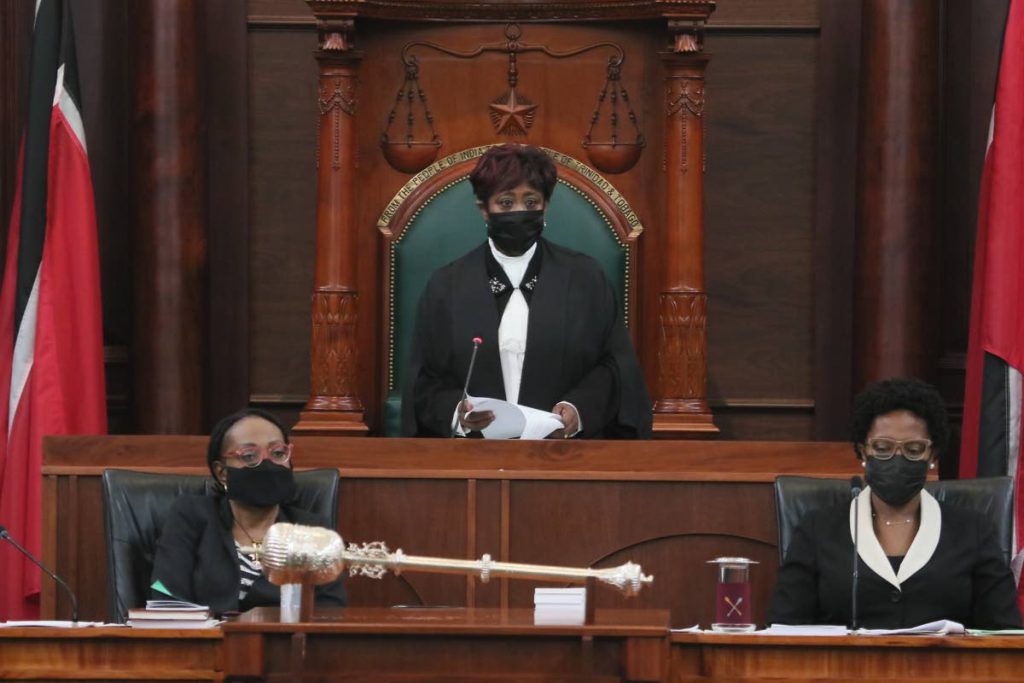Debate, not debacle

Thursday's sittings of the House of Representatives and of the Electoral College showed up a number of flaws in this country’s Parliament, and not merely what many considered bad behaviour by the Opposition.
For one thing, it pointed to a need for members to come to the chamber with a greater commitment to the principles of governance, not throw down for battle, or with the attitude, “My party, right or wrong.”
The TT House of Representatives is a scaled-down version of the Westminster system, and that smaller scale has consequences.
In most general elections since independence in 1962, the first-past-the-post system has given the government a majority, and hence automatic victory on many issues – although it also means the party must impose what the English Parliament would call a three-line whip on every single vote. That is, members must always toe the party line; were conscience votes allowed, governments might fall, requiring a general election, several times a year.
In elections that deliver a significant majority to the winners, the opposition’s role is even further diminished.
In the Senate, the last call for government decision-making, that authority is leavened somewhat by the nine independents chosen by the President.
Thursday's sitting went downhill after the Speaker declined to allow debate on a motion, brought by the Opposition Leader, that could have ended with the removal of the President.
The motion was doomed in any case, since no matter how persuasive Mrs Persad-Bissessar's rhetoric, no government member would admit to changing his or her mind as a result. But at least a debate would have allowed the Opposition to vent its concerns fully, to ask questions and perhaps elicit some answers.
Fuelling more ire was the Speaker's refusal of a secret vote on the motion.
So the Opposition resorted to shouting, desk-thumping and attempted filibustering over side issues, such as whether Independent Senator Charisse Seepersad should recuse herself, as the sister of former Police Service Commission chair Bliss Seepersad.
The fallout has been unfortunate. For all the sound and fury, the country is none the wiser about what caused the collapse of the process for appointing a Commissioner of Police and two successive acting CoPs.
In addition, many members of the public were appalled by what they considered mere rowdiness and indiscipline.
Passion among politicians is not necessarily a bad thing, and in this case the Opposition was correct to be disturbed at the near-impossibility of having its concerns addressed. Its method of conveying that alarm to the public, however, appears to have backfired.
No one emerged untarred. Respect for the legislature has been dented: even the Independent senators stand accused of siding with the President not on principle, but in order to keep their posts.
The core issues remain. Despite amendments, the legislation for appointing the police leadership remains flawed.
All these issues are highly unlikely to be properly addressed, given the mortally adversarial positions adopted these days by the government and opposition.
What’s needed is a cooling of the political temperature, less metaphorical tyre-burning by the Opposition, less imperious silence from the government and more attention to their shared role in the orderly governance of the country.
Appointing a Commissioner of Police using civil, mutually agreed procedure would be a good place to start.


Comments
"Debate, not debacle"